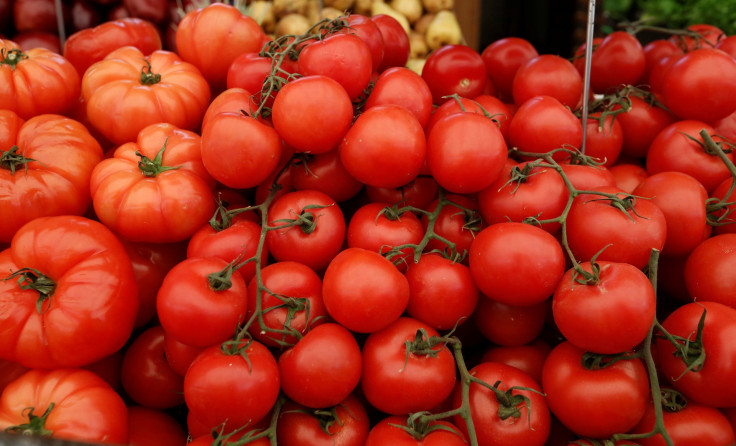Make Tomatoes Great Again: Restoring Better Flavor, Taste To The Red Fruit

Whether you buy your tomatoes from a Whole Foods, the neighborhood shop or a local produce vendor, chances are they don’t taste very different, or very good. And now, scientists can tell you not just why tomatoes have lost their rich flavors over the years, but also how they can be made to taste great again.
A global team of researchers, led by a professor from the University of Florida, has identified the lost chemical combinations that give tomatoes their flavor, and the findings were published Thursday in a study in the journal Science. Harry Klee, a professor of horticultural sciences at the university and a co-author of the study, said in a statement that the solution to restoring good taste to tomatoes did not involve genetic modification, but used classical genetics instead.
“We’re just fixing what has been damaged over the last half century to push them back to where they were a century ago, taste-wise. We can make the supermarket tomato taste noticeably better,” Klee said.
The researchers began with identifying the specific chemicals in the red fruit responsible for taste. They found that the sugars and volatile chemicals that give tomatoes better flavor were lost in the last 50 years or so of selective breeding which focused on other traits like longevity, higher yield, redness of color, disease resistance and others while neglecting genes that gave them flavor.
Once the relevant gene variants — called alleles — and their locations within the tomato genome were identified, using genome mapping, the “bad” alleles in modern tomatoes were replaced with “good” alleles from wild varieties.
The study, titled “A chemical genetic roadmap to improved tomato flavor,” says: “Whole-genome sequencing and a genome-wide association study permitted identification of genetic loci that affect most of the target flavor chemicals, including sugars, acids, and volatiles. Together, these results provide an understanding of the flavor deficiencies in modern commercial varieties and the information necessary for the recovery of good flavor through molecular breeding.”
Since the researchers are studying more genes, and breeding takes time too, the improved taste by changing genetics will not happen overnight. According to Klee, new flavorful tomato varieties will likely take 3-4 years to produce.
According to the U.S. Department of Agriculture, the country is second only to China in global tomato production. California and Florida account for between two-thirds and three-fourths of all commercially grown tomatoes in the country, and the industry is worth over $1 billion in the U.S.
© Copyright IBTimes 2024. All rights reserved.




















